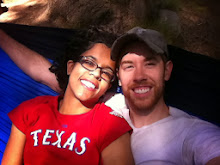I love hiking with Russ on the Greenbelt. It is the best maybe 24 hours after a heavy rain fall. Just enough time for the ground to (mostly) firm up again, but not too long after so that the smell of wet woods and greenery remains. And, the creek is full enough that you can hear it running as you walk along. We explored a new part of the trail today and chatted along the way. I've had on my mind lately how I address sins of racism and gendering in my life. Working at a school, I have a front row to ticket to the burgeoning racism and sexism in these young adults. I address this in various ways in my classroom, mostly going along the the gentle but strong "calling out" tactic. Still, I realized that I cannot make profound change in all the students I "call out." I've also talked about this issue with adults and those conversations are less gentle and more strongly geared to highlighting the underlying prejudices in their statements. Basically, I'm not scared to talk about race with folks; it is important to continue to bring that sin out of darkness into the light, so that we can expose it.
Here's my issue though: I've met to know some people recently who I believe are intelligent folk and aware of their privilege as white, protestant, straight folk. I think they are aware at least. Maybe I give too much credit, but I have to, otherwise, I'll lose hope in all of this. In any case, that social awareness doesn't seem to extend to issues of gender. They have made offensive remarks about gay men and said some other things that are just problematic gender assumptions. It irritates the crud out of me but I'm not quite sure how to deal with it. If they were even off-handed racist comments, I wouldn't have thought twice about my response.
"Hey, that's offensive. What you are saying implies this-and-that about people of color and it is a gross generalization, and by gross I mean both large and icky."
Why aren't I as quick to respond in defense of my gay brothers and sisters? I mean, I should have been. I so strongly believe in acting toward righting the injustices of racism and sexism. These things should be made to see truth, and have to be willing to be exposed to the social structure that formed us. I don't know what I'm going to say next time I hear someone say something I believe is racist or sexist or homophobic. I really don't have a clue, but I pray I'll respond firmly and with the hope that God wants them to see others as He sees them. Just like with my kids at school, I just hope whatever I say makes room in their young brains for God to demonstrate his love for all people.
Loving the outdoors and paying the allergies price,
Mals




1 comments:
Interesting thoughts here, Malsina. Maybe you feel less comfortable calling out homophobia and sexism because our culture more effectively normalizes homophobia and sexism than racism? Which is not to say that racism is "obvious" or "easy"--if anything the fact that people think the world is "post-racist" makes it even harder to point out structural racism! But we do more often accept jokes about women and gays than we do about African Americans. Except me. I'm here to rain on your sexist joke parade, pal. And I include blonde jokes in there which, being blonde, I never liked particularly, but I have realized recently they are actually just about women too, so I'm even more pissed about it.
Post a Comment